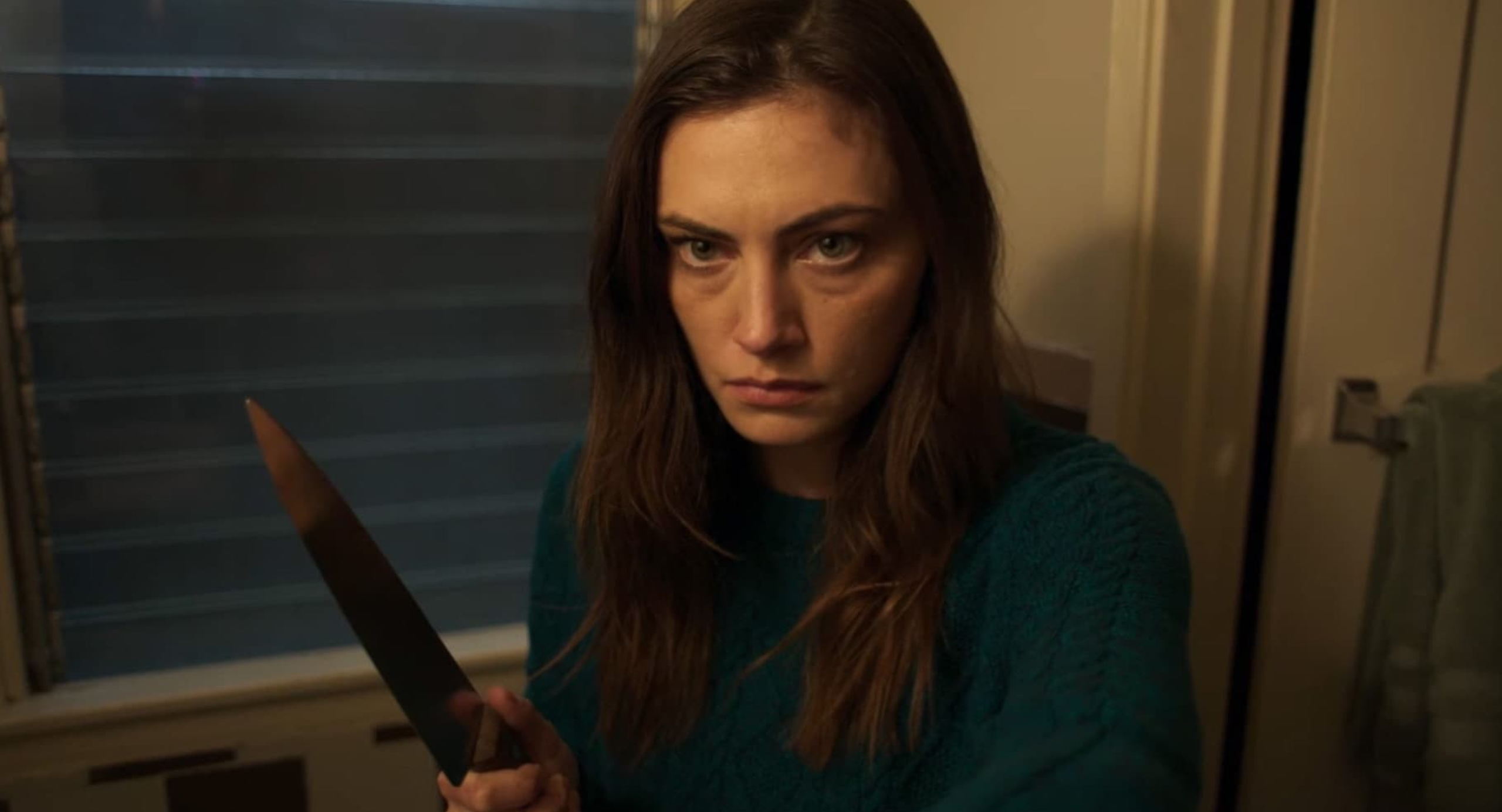Night Shift – Film Review
Published March 16, 2024

Night Shift offers a promise of melding supernatural chills with the nerve-wracking suspense of psychological thrillers. Directed by the sibling duo Paul and Benjamin China, the film centers on the debut night shift of Gwen Taylor (Phoebe Tonkin), who quickly realizes her job at a remote motel may entail more than she bargained for. Supported by Lamorne Morris as Teddy Miles and Madison Hu as Alice, the film weaves a tale of intrigue, mystery, and terror that endeavors to set itself apart from the myriad of horror movies in the industry. The outcome is a piece that, while earnest in its effort, yields mixed results. However, it does boast a whopper of a twist ending that will leave you completely shocked. It’s one of the most shocking twists in recent horror movie history, to be honest.
At the outset, Night Shift benefits greatly from its casting choices. Phoebe Tonkin delivers a performance that marries vulnerability with a burgeoning sense of fortitude. As Gwen, she is immediately relatable, embodying the apprehensions and uncertainty that accompany a new job—especially one situated in a desolate locale and shrouded in nocturnal shadows. Tonkin’s portrayal allows the audience to latch onto her emotional journey, making the unraveling horrors not just an external experience but an internal one as well. Lamorne Morris and Madison Hu complement this dynamic well, serving both as plot devices and as deeper characters in their own rights, adding layers to the narrative.
The film’s setting plays a character all its own—a trope often employed in horror to great effect. The remote motel is laden with a foreboding silence and a creeping sense of isolation that the China brothers skillfully exploit. This backdrop, coupled with the film’s cinematography, manages to be simultaneously claustrophobic and expansive, imbuing every frame with tension. The visual aesthetics of Night Shift do much of the heavy lifting in cultivating an atmosphere brimming with anticipation and dread.
However, where Night Shift begins to falter is in its ambition to blend the supernatural with a psychological thriller framework. The premise—though not entirely original—offers a fertile ground for exploration, hinting at Gwen’s past coming back to haunt her in literal and metaphorical ways. The build-up is engaging, drawing the viewer into a maze of suspense and mysteries. Nonetheless, as the plot thickens, the movie struggles to maintain a coherent narrative, wavering between its supernatural elements and the psychological unraveling of its protagonist.
The script, also penned by Paul and Benjamin China, showcases moments of brilliance with crisp dialogue and compelling scene setups but succumbs to convolution as it attempts to juggle various thematic elements. The initial intrigue established starts to feel burdensome as the plot advances, leaving some story arcs underdeveloped and others teetering on the edge of cliché. The pacing suffers as a result, with certain sequences dragging on, while others rush towards resolutions that lack satisfying build-up or explanation.
Moreover, the film’s endeavor to inject supernatural occurrences sometimes feels at odds with the psychological thriller tone it initially sets. While supernatural horror can enhance the psychological distress of characters, Night Shift at times blurs the line too much, leading to a narrative dissonance that might leave viewers perplexed rather than terrified. The climax, in particular, might divide audiences, as it attempts to amalgamate its myriad elements into a resolution that is ambitious yet somewhat muddled in execution.
Despite these criticisms, Night Shift shines in its ability to create suspense out of minimalistic situations and settings. The directors masterfully utilize shadows, sounds, and suggestive horror, proving that terror doesn’t always have to be overt to be effective. This subtlety is where the film excels, embedding a lingering sense of unease that stays with the viewer.
Additionally, the performances across the board are commendable. Tonkin, as mentioned, stands out, but the supporting cast also brings depth to their roles, with Lamorne Morris injecting both warmth and complexity into the narrative, and Madison Hu delivering a performance that is both eerie and engaging. Their interactions weave a palpable tension that carries the film through its less coherent moments.
Night Shift ultimately stands as a testament to the China brothers’ ambition and creativity in the horror genre. It endeavors to offer something fresh, a hybrid of terror and mystery that melds into a truly memorable experience. While not entirely successful in its execution, the film is a testament to the potential that lies in mixing genres and exploring the psychological depths of fear.
With a running time that allows for a full exploration of its premise yet occasionally falters in pacing and clarity, Night Shift deserves a watch. Its atmospheric tension, strong performances, and moments of genuine suspense make it a worthy watch for horror enthusiasts.
